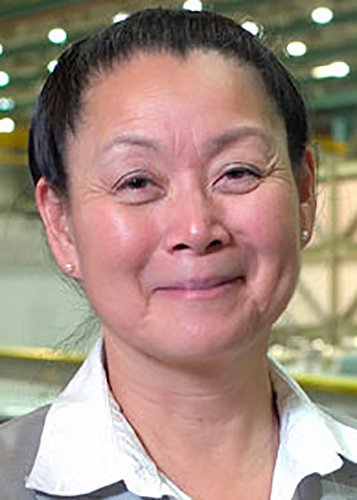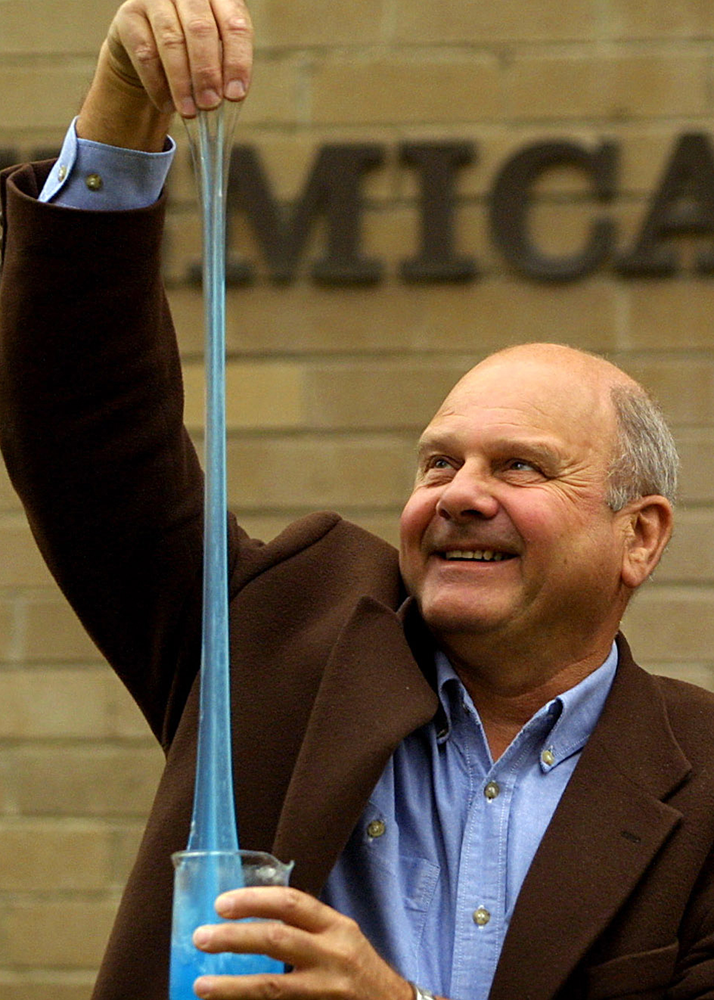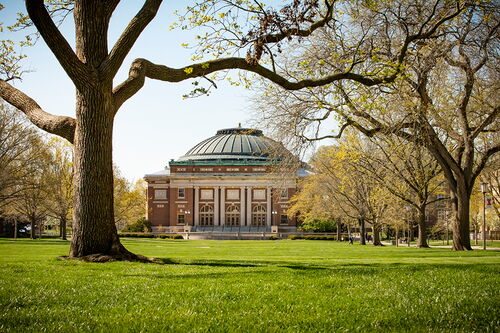Two LAS alumni elected to National Academy of Engineering

Two alumni from the College of LAS have been elected into the National Academy of Engineering (NAE), considered to be among the highest professional distinctions that can be obtained by an engineer.
Dianne Chong (BA, ’71, biology), who went on to earn master’s degrees in physiology and metallurgical engineering, and a doctoral degree in metallurgy, at the University of Illinois-Chicago after earning her undergraduate degree on the Urbana-Champaign campus, was cited for "advances in process and production technologies for composites in large commercial aerospace vehicles," according to NAE.
Chong, who retired in 2015, spent much of her career at Boeing Research & Technology, the company’s central research and development unit. She was named vice president of (materials) assembly, factory, and support technology, with her team responsible for non-destructive evaluation for programs such as the Boeing 787 Dreamliner.
David Boger (MS, ’64; PhD, ’66; chemical engineering) studied at Illinois under James Westwater. After graduation, he joined the chemical engineering faculty at Monash University in Melbourne, Australia. He is cited for “discoveries and fundamental research on elastic and particulate fluids and their application to waste minimization in the minerals industry,” according to NAE.
Chong spent the first five years of her career in neurophysiology, studying the effects of stress on the brain. When she decided to go back to school, she said someone suggested to her that she look into engineering. After earning her advanced degrees, she began working McDonnell Douglas, a major aerospace company which later merged with Boeing.
Reached recently at home in Washington, Chong credited her undergraduate education in biology and psychology at U of I for problem-solving processes that she used for her entire career.
"The education that I received at the University of Illinois really taught me how to think and approach different topics," Chong said. "It didn’t matter what the subject was, I just knew how to approach things based on the education that I had received. It didn’t matter that I was taking a slightly different path… Learning is much more than just the subject matter, sometimes."

After Illinois, Boger went on to become a world-renowned expert in complex fluids known for changing our understanding of the field of rheology, the study of how materials flow. His work focuses on the development of what are appropriately called "Boger Fluids," which behave as both liquids and solids.
His work with mining companies around the world has helped minimize the normal environmental risks involved with mining waste. Boger returned to U of I in 2015 to deliver the Distinguished Alumni Lecture.
Others elected to the NAE this year with ties to the Illinois Department of Chemical and Biomolecular Engineering include Jennifer Lewis (BS, ’86, ceramic engineering) and Michael Strano. Lewis, currently the Hansjorg Wyss Professor of Biologically Inspired Engineering at Harvard University, was an affiliate faculty member from 2003 to 2012. Michael Strano, Carbon P. Dubbs Professor of Chemical Engineering at the Massachusetts Institute of Technology, was a member of the ChBE faculty from 2003 to 2007.
In all, eight individuals with ties to Illinois were elected to the NAE this year. Individuals in the newly elected class will be formally inducted during a ceremony at the NAE’s annual meeting in Washington, D.C., later this year.
Academy membership honors those who have made outstanding contributions to engineering research, practice, or education, including significant contributions to engineering literature, and to "the pioneering of new and developing fields of technology, making major advancements in traditional fields of engineering, or developing/implementing innovative approaches to engineering education," according to NAE.







